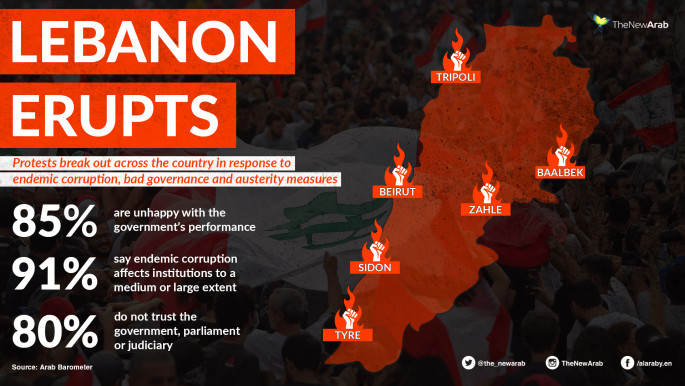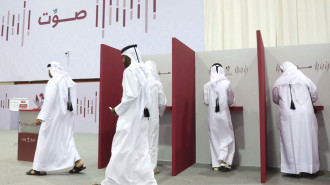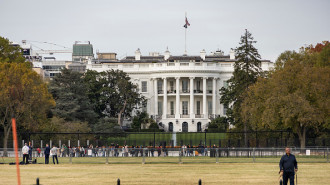Fears over army violence, detentions as Lebanese authorities crack down on protests
Activist Khaldoun Jaber was released on Thursday evening after spending 15 hours in detention.
In televised footage after his release from the Ras Beirut police station, Jaber took off his shirt to reveal bruises covering his back.
He alleged the marks were sustained after Army Intelligence forces dressed in plain clothes arrested him at a demonstration in Baabda on Wednesday.
"They dragged me and then took me to the Defense Ministry," he said according to The Daily Star. Eyewitnesses confirmed Jaber's account of being beaten by plain-clothes Army Intelligence officers.
Photos distributed on social media on Friday showed another protester, identified by journalist Luna Safwan as Fadi Nader, who had allegedly been beaten by security forces.
The photos showed multiple black bruises and elongated red marks on the man's back.
Fears of violence against detainees are heightened in Lebanon, with activists reporting at least seven people detained on Thursday as authorities broaden their crackdown on protesters.
While The New Arab could not attain a centralised figure of the number of protesters detained, figures circulated by activists put the number arrested overnight between 12 and 30 people.
The spate of reported arrests comes as people demonstrated on Thursday against the reported appointment of former finance minister Mohammad Safadi as the country's new prime minister.
While political factions reportedly agreed upon the Saudi-linked businessman's nomination to replace former Prime Minister Saad al-Hariri, demonstrators took to the streets to oppose the decision.
Protesters in the northern city of Tripoli demonstrated outside Safadi's residence, acccording to Al-Modon, and demonstrators in the capital returned to the luxury yacht and beach club Zaytouna Bay.
 |
| Read more: Lebanon's Ponzi scheme economy is broken. Protesters want the wealthy one percent foot the bill |
Lebanese demonstrators had last week occupied Zaytouna Bay, a luxury club built on illegally privatised public land which is widely seen as a symbol of corruption and the privatisation of Beirut's coastline.
Safadi is the majority shareholder of Stow Group, which runs the luxury marina and club as a joint venture alongside Solidere.
Activists reported army personnel, sometimes dressed in plain clothes, attacking protesters in at least two locations in an uptick of violence on Thursday night as the military vowed to re-open roads blocked by demonstrators after reports of Safadi's nomination.
Family and friends of Samer Mazeh and Ali Basal, reportedly arrested at Beirut's Ring Bridge on Thursday, gathered outside the Justice Palace on Friday morning.
"One person from a group of Army Intelligence, wearing civilian clothes, approached Samer and initiated a scuffle... Ali Basal, [Mazeh's] friend, interfered. We tried to stop them [from arresting Basal and Mazeh] but we couldn't," a friend told The Daily Star.
A video shared on social media later on Friday indicated Basal and Mazeh's release.
'Criminalisation of speech'
Human Rights Watch on Friday condemned Lebanon's use of insult and defamation laws to "silence" journalists and activists discussing allegations of corruption and the country's political and economic crisis.
Such discussions make up the bulk of chants by Lebanon's unprecedented mass protest movement, now in its 30th day.
The human rights organisation has called on Lebanon to repeal laws which criminalise speech.
"Criminal defamation laws are a potent weapon for those in Lebanon who want to silence criticism and debate about pressing social and human rights issues," said Joe Stork, deputy Middle East director at Human Rights Watch. "At this critical juncture, Lebanese officials should safeguard, not stifle, free expression."
Lebanon's penal code also criminalises insulting the president, national emblem or flag.





 Follow the Middle East's top stories in English at The New Arab on Google News
Follow the Middle East's top stories in English at The New Arab on Google News


